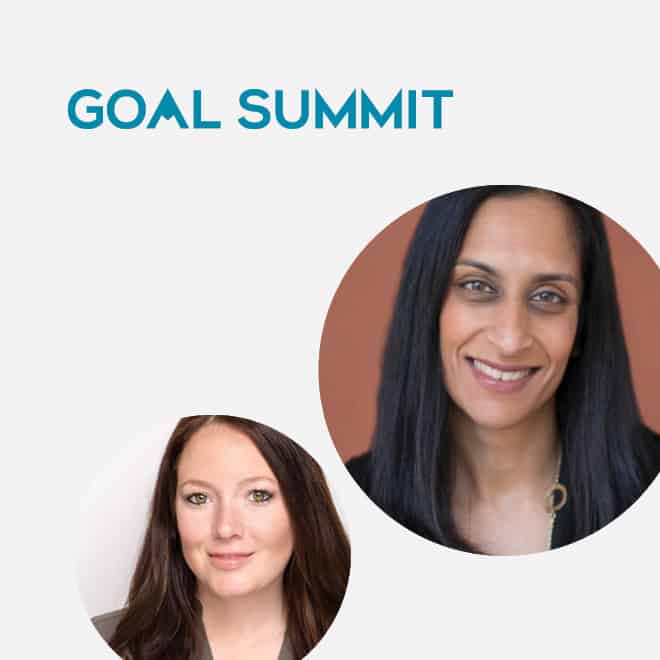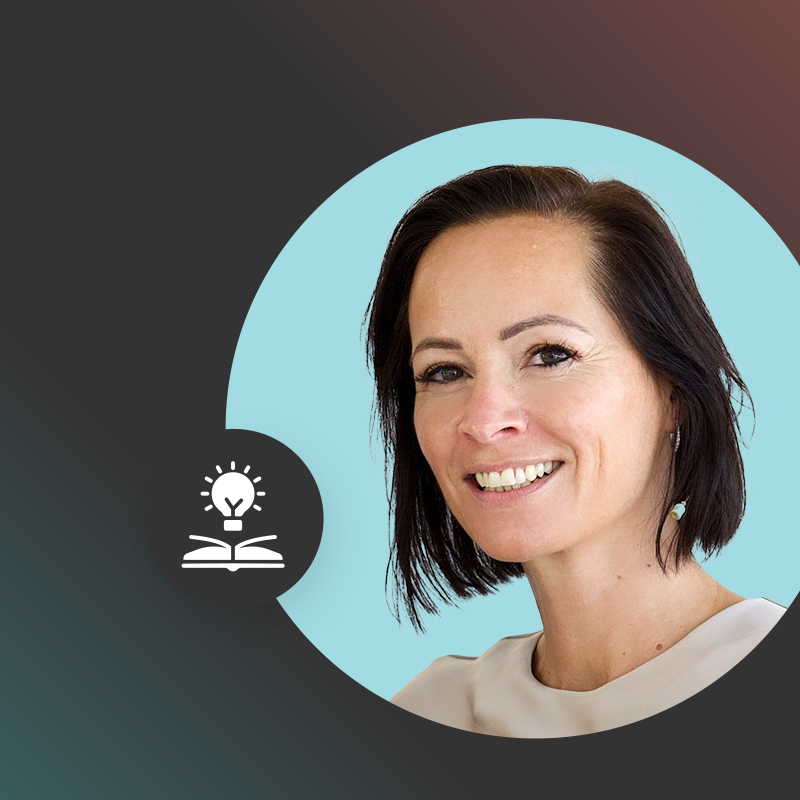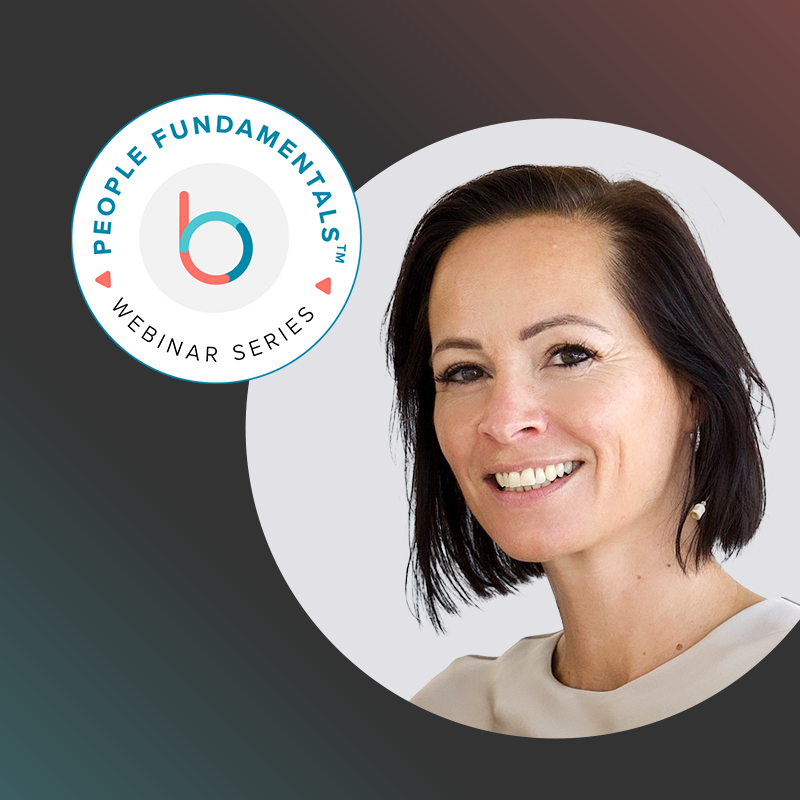Are great leaders born or made? Many would argue they’re made— through curated experience, the constant drive to grow skills and expertise, and confidently taking on the next big challenge. As 2020 has shown us, having the flexibility to adjust quickly to change is becoming one of the most important skills of the future.
Talia Fenech, Senior Customer Success Manager at Betterworks spoke with Humera Shahid, Vice President of Talent Development at Intuit to discuss connecting people to business strategy.
Humera and her team leverage data and technology to deepen Intuit’s understanding of the workforce and discover what employees need to be effective in their roles. Talia asked her about how she approaches professional development, what a hybrid workplace model can look like at a company, and what’s most important for HR leaders to understand going into the future.
Talia: Why do you think business leaders should care if their HR teams are investing in their people?
Humera: The trends that we see are our leaders deeply care because they understand that all of our employees have a choice—they choose to come work for us. Or, they’ll go somewhere else.
The number one reason that a person leaves a company is in service of their career. Whether that means a promotion or an expanded opportunity, people want professional growth. If we don’t, as HR leaders, make that investment, they will go somewhere else. We believe each individual drives their career, but there is a big role that a manager and the company plays in that journey. We’re in the business of people. We care deeply about our customers and products, but we can’t make anything happen unless we have people.
The other thing that plays into this is change. The business landscape changes faster than ever before and if we’re not invested in helping our employees gain the skills and knowledge that they need as we evolve as a company, then we’re not going to be successful. It seems so obvious when you think about it, but sometimes you have to take a step back and think: we have to care, feed, and invest for the future.
There’s another piece for leaders to think about, which is how do we get those skills? You build, buy, or rent. Perhaps the answer is acquiring a company. Maybe it’s a push to recruit because we need that skill right now and we don’t have time to develop it. But ultimately, you can’t just recruit or hire your way there. You actually have to build your workforce through reskilling or upskilling or newskilling. In other words, how do we build the workforce that we need for the future? We find ourselves in that position at Intuit. That’s why leaders care. Because ultimately, we can’t deliver products and services for our customers unless we invest in talent.
Talia: Covid-19 has been a big game changer for the way we work, and it’s still evolving. How can leaders and employers stay flexible in this time of change? Why does flexibility in the workplace matter?
Humera: The pandemic has changed so much for companies. Before Covid-19, we were having lots of discussions around the future of work and Covid has accelerated those conversations. There are three things that stick out for me in terms of what has changed.
The first is working 100% virtually. We would not have imagined this would be possible. Every company is different, but Intuit went 100% virtual in March 2020. We were asking ourselves to work in a very different way at a large scale. Of course it came with struggles, but it profoundly changed how companies will operate moving forward.
In terms of flexibility, what we’ve found is that people want choice. Some employees want to be in physical space, they want social connection, or their home isn’t conducive for work. Other people are thrilled to not have to commute, have less interruptions at home, and want to continue working remotely. That’s a big theme—how do we provide that flexibility that still works for the jobs we have?
We’re looking at roles that could be 100% remote, some combination, or onsite—depending on the nature of the work. And then the question is, “What does the individual filling that role want?” That intersection is really important. The way we operate in March of 2022 will be completely different from how we operated in March of 2020.
The second theme is the emergence of mindfulness and mental health in the workplace. We used to think about it as a benefit. Now, I hear from managers all the time that they are spending more time having conversations with their employees that aren’t just, “How are you doing?” but “How are you really doing? How can I support you given everything that’s happening?” I don’t see that going away. Conversations about mental health and wellbeing will continue and become part of a manager’s role to have open conversations with their employees. Ultimately, those conversations are about an employee’s engagement, productivity, performance, and how they want to grow with the company.
Finally, when you’re facing a pandemic, and mortality, you’re at home and thinking a lot, you start to reflect on how you spend your time. Folks being in shelter-in-place for so long surfaced questions for people around, “Am I doing the job that I love? Is this how I want to spend my time? Am I being the person I want to be in my life?” I believe personal motivation and career aspirations are going to come together as people return to the workplace. That’s going to be really big as folks as they redefine what success was before and what they want it to be now.
Talia: What’s different about Intuit’s talent development today versus a year ago? How has your professional development changed?
Humera: Many organizations, including ours, have seen an increase in people wanting to invest in themselves and in learning online. We started to see people make connections around skills and start to learn more than what’s necessary for their work. So, for example, we started to see people taking classes on meditation or yoga or learning new languages. When we’re given this extra time, people want to learn something.
At Intuit, we were always working toward going more online in order to hit scale especially across time zones. We value bringing people together and fostering human connection and we will again, but I think now we’re going to be even more thoughtful about when we do that.
The other thing that’s changed, which is fascinating, is that people signing up for formal development programs have increased and attrition has decreased. We’re seeing more uptake, more interest with less drop off. This format has allowed us as a company to scale more quickly and make it easier for people to connect.
The other thing is business-driven. We’ve taken on defining what ‘craft skills’ are. What are the skills and competencies we really need in our disciplines to be successful? How do we align learning and development opportunities connected to that?
Many companies are doing this. Technology is changing fast, industries are moving, there’s a lot of ambiguity and people want to know how to keep growing. We’re trying to be really transparent with all of our teams that we’re doing this work and committed to finding formal learning paths for them.
Lastly, we’re really focused on our managers. We think our managers are a lynchpin. They create experiences for employees in so many ways: feedback, coaching, the work they’re doing. And now, they’re helping with culture. Many people have been onboarded remotely and have never met their manager in person. Those managers are carrying the Intuit culture. We’re asking managers to ask their employees about mental health, racial injustice, and social issues that are emerging. We’re asking a lot of our managers, so we’re really committed to supporting them as well. And remembering that they are employees first. We’ve dialed up the investment that we’re making in our managers as well. What we’re asking them to do now is different from what we were asking them a year ago.
One of the things we’ve done is focus on the community. How do you build a manager community that’s really strong, so they can support each other?
Talia: At Betterworks, we think a lot about connecting your people to your business strategy. How are you and Intuit closing this loop?
Humera: One of the things I was blown away by when I joined Intuit was how much operational rigor the company has around strategy and goal setting. It’s a business process. So we present a business multi-year strategy. We have bold goals that we plan to achieve by 2025. We have big, strategic bets that we are taking on as a company. Then we break that down into a 3 year plan with a 1 year plan that goes with it.
In order to fold in individual goals, we took that business framework and added on the individual piece. We talk about it quarterly at our all hands meeting, we remind everyone about our strategic bets, and make that as transparent and visible as possible. Through all of that, Betterworks enable us to do all of it—and to reach all of our employees.
We also have a dashboard that we make public to employees, too. The dashboard has the big bets that we’re taking as a company, the goals we have, and the progress we’re making against them on a monthly basis. Then, when you set your individual goals you can see our progress as a company monthly and therefore, people are able to realize they, too, have progress to be made monthly. It drives our monthly check-in process.
Every company wants to connect business strategy to their people, but it can be hard to put into practice. We talk about it all the time, at every level. What we’ve also learned through our internal conversations is that employees aren’t always interested in knowing exactly how my goal maps to every layer of management until I reach the CEO. They want to know how their goals contribute to their team’s goals. So when we keep that line of sight really clear to what we’re trying to do as an organization and are transparent, that makes a difference for us.
Making those connections is our responsibility as HR leaders. We want people to know that they’re working on the most important things.
For more insights into how to build professional development in a flexible workplace as an HR leader, access the on-demand recording of the conversation with Humera Shahid here.


